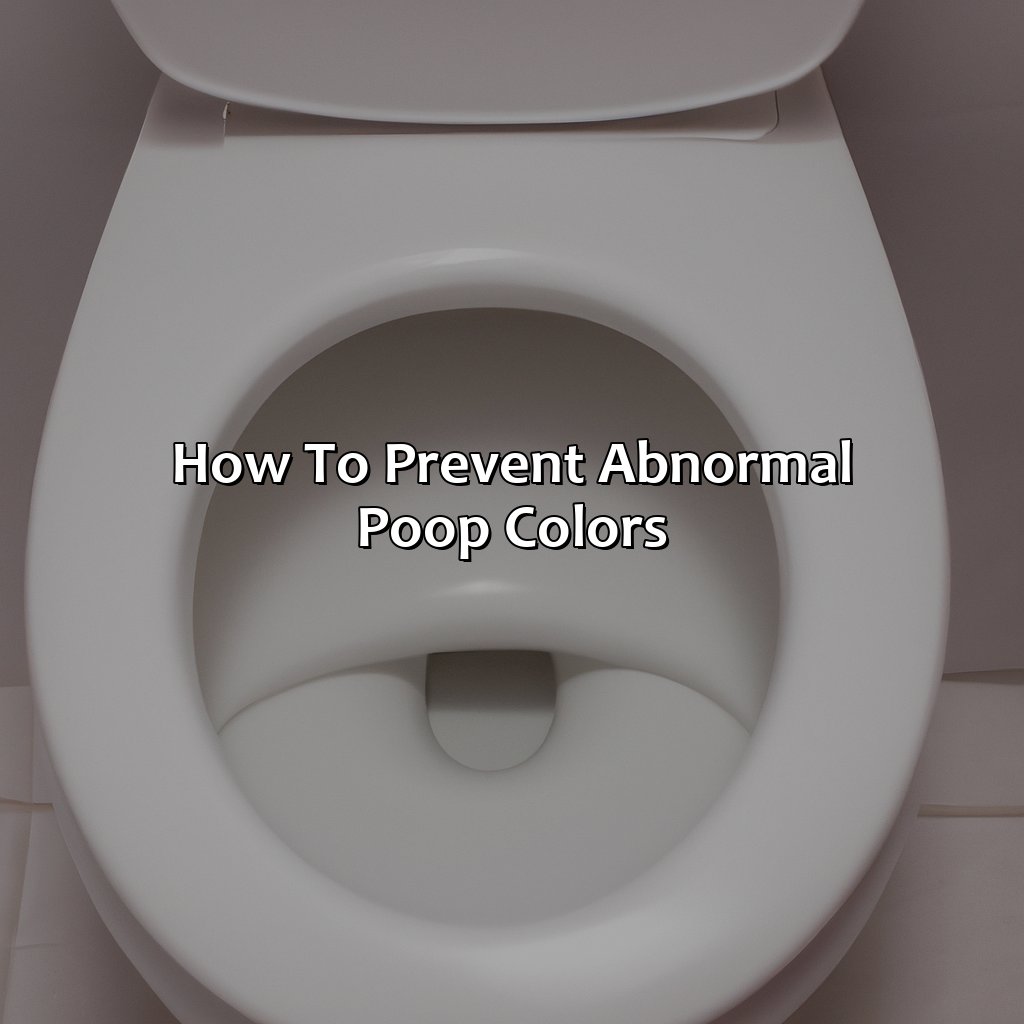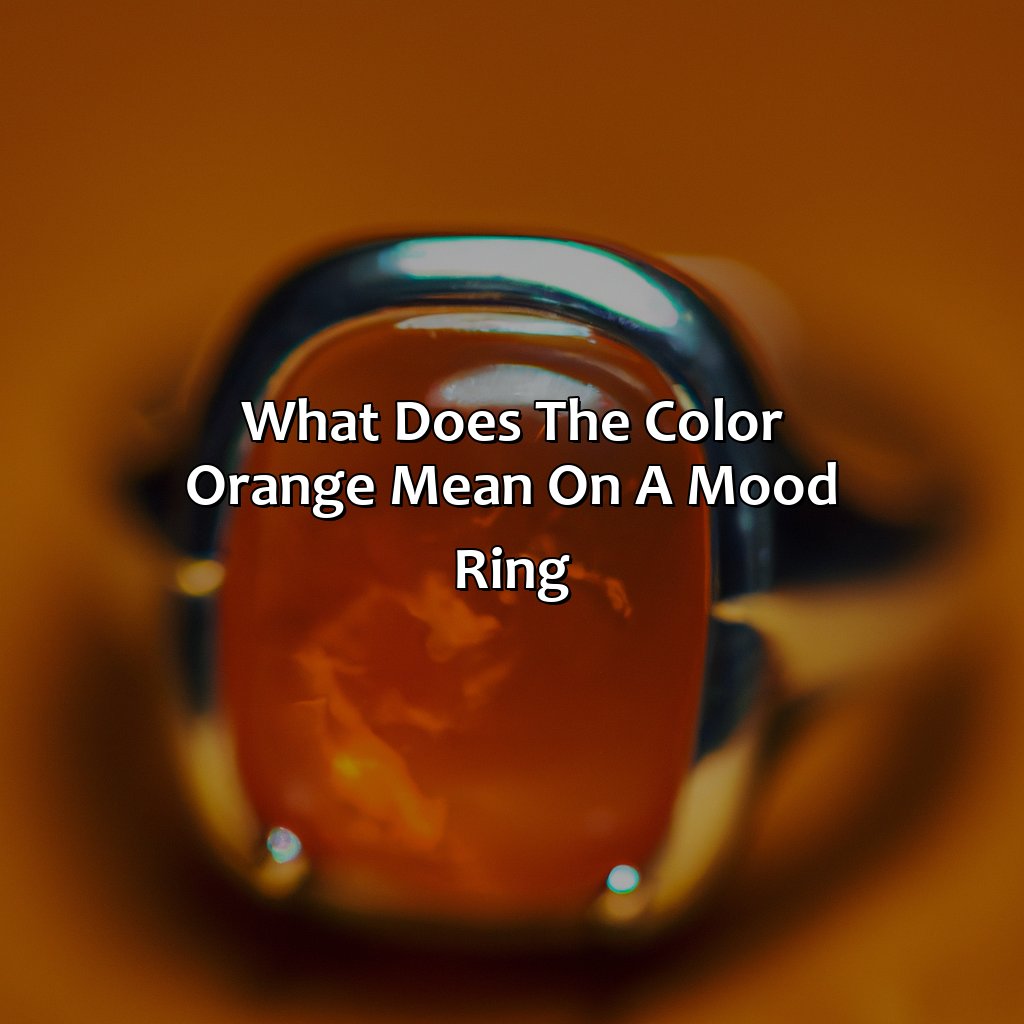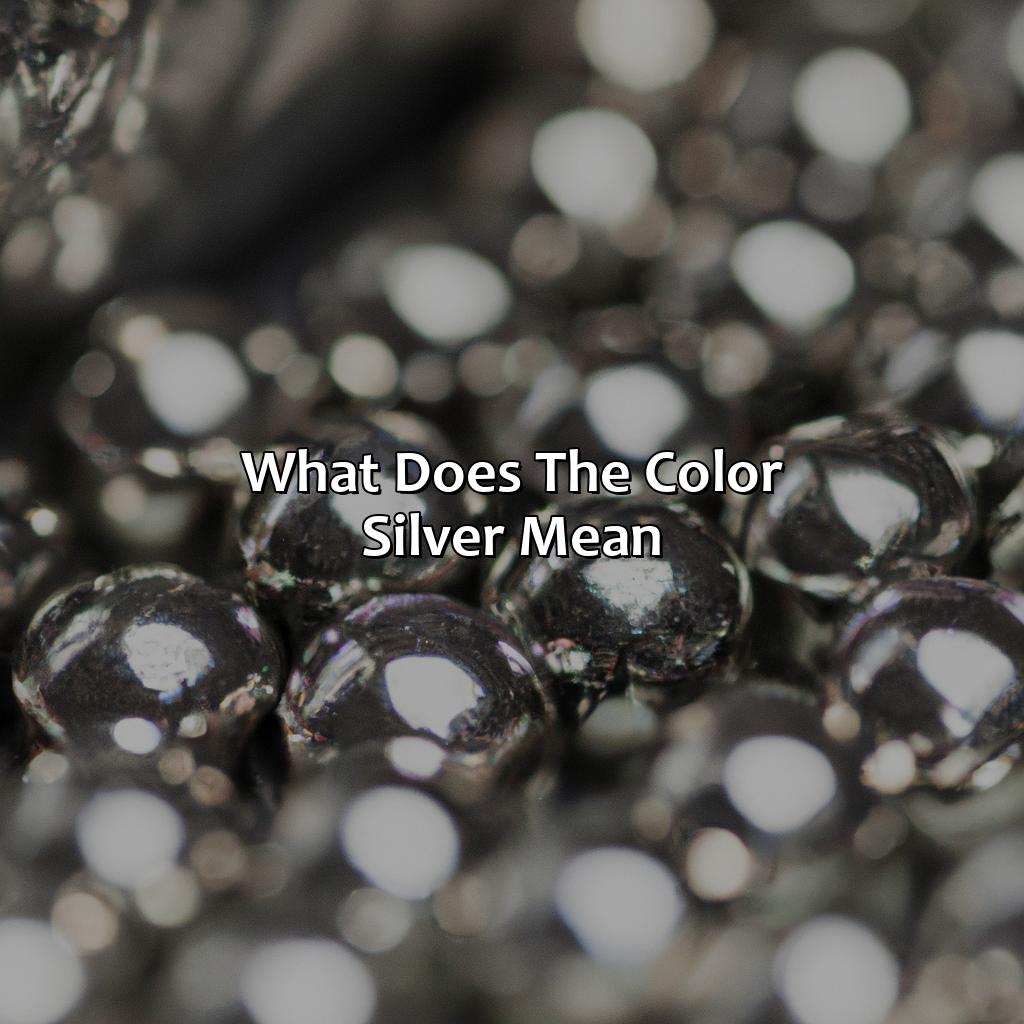Key takeaways:
- Monitoring the color of your poop is an important way to assess your digestive health and the functioning of your gastrointestinal system. Healthy poop should generally be brown in color.
- Green poop can be caused by an intake of too much leafy green vegetables or food absorption issues. Yellow poop can indicate liver function or bile issues, and white or gray-colored poop may suggest liver or gallbladder problems. Red or black poop may indicate the presence of blood in your stool, and should be promptly addressed by a healthcare professional.
- If you experience any abnormal poop colors, it is important to seek medical help to identify possible medical conditions, which could range from dietary issues to serious health concerns like colon cancer. Maintaining a healthy diet, hydration, exercise routine, and lifestyle can help prevent abnormal poop colors and improve overall digestive health.
Explanation of the importance of monitoring the color of your poop
It is essential to monitor the color of your poop as it serves as an indicator of digestive health and can detect underlying problems in the gastrointestinal system. The texture, shape, and color of your feces can provide valuable insight into any health issues that you may be experiencing. You should aim for regular and healthy bowel movements to ensure that any abnormalities are quickly identified.
Abnormalities in poop colors such as white, black, red, green, or gray could mean that there might be potential problems within your digestive system. Identifying these abnormalities on time and understanding the reasons behind them is crucial. This can facilitate treatment and lower the chances of serious medical conditions from developing.
Additionally, regular monitoring of the color of your feces will enable you to make informed decisions about dietary choices which aid bowel movement regulation. Consuming a balanced diet rich in fiber could enhance digestion and prevent irregular stool patterns.
Taking care of digestive health must be one’s top priority; hence seeking medical attention if you doubt any abnormalities is strongly advised. Not addressing irregularities at earlier stages could lead to more severe complications later down the line. Don’t miss out on paying attention to small details since monitoring poop color can provide meaningful insights on avoiding diseases related to digestive health.
Let’s dive into the world of poop colors – it’s not just brown anymore!
Normal Poop Colors
To grasp healthy poop, you must be aware of the typical poop colors. Brown is generally normal. However, green and yellow could mean issues beneath the surface. Green poop can be due to inadequate nutrition and absorption of food. Yellow poop can mean problems with the liver, gallbladder, or bile.
Brown Poop
Brown poop is a normal and healthy color of stool. The brown color comes from bile pigments in the liver. When food waste passes from the small intestine to the colon, bacteria break down the remaining material, adding more pigment to create a brownish hue.
A change in the brown color could indicate a digestive issue, but it is usually nothing serious. Eating a balanced diet with plenty of fiber and staying hydrated can help maintain healthy bowel movements and normal poop color.
I guess that person’s diet is really paying off – their poop is green!
Green Poop
Stool with a green hue can raise concerns about one’s health. Green poop may result from various causes, including diet, medication, and digestive problems. The color can signify that food is moving through the gut too quickly or not being digested correctly, affecting food absorption and ultimately nutrition. It could also reflect an underlying medical condition.
An alternative name for green poop is emerald-colored poop. In some cases, consuming a lot of leafy greens, iron supplements, or even blue or purple foods like berries could lead to harmless green poop. However, if symptoms persist or come along with abdominal pain and diarrhea, it is essential to consult a physician immediately.
It is estimated that 2% of people with celiac disease have chronic diarrhea and pass stool of this color due to malabsorption issues. According to Dr. Oz in his book- ‘You: The Owner’s Manual’ – the body requires salt bile acids to break down fats in the liver and bind them as they move through the intestines so they can be absorbed by the body. However, when the liver produces excess bilirubin (a yellowish pigment produced by the breakdown of hemoglobin while breaking itself down red blood cells), it combines with the acidic substance in feces producing a green hue disease called Gilbert’s Syndrome).
A yellow poop could mean your liver needs some TLC, or your gallbladder is giving you trouble with its precious bile.
Yellow Poop
The color of your poop is an indicator of your overall health. Yellow poop may indicate issues with liver function or the production of bile in the gallbladder. A variation in the pigment bilirubin can also cause yellow poop, which may result from an obstruction in the biliary system. Nevertheless, the exact root cause of yellow poop must be determined by medical professionals and not self-diagnosed. Seeking professional medical help is crucial for a proper diagnosis as it could be indicative of an underlying issue.
Interestingly, there have been records where consuming beetroot has resulted in yellow stool due to its yellowish pigment that changes when mixed with the digestive enzymes.
Your poop can reveal more about your health than your doctor ever could.
Abnormal Poop Colors
It’s essential to watch out for abnormal poop colors, which can be a sign of health. Red or Black Poop might mean blood in stool or colon cancer. White or Clay-Colored Poop may be linked to liver, bile and gallbladder issues. Orange Poop could be a result of food or digestion problems. Gray Poop could be a sign of pancreatic issues.
Red or Black Poop
One alarming color variant in poop is either red or black. This discoloration indicates the presence of blood in stool, which can be a sign of serious medical issues, including colon cancer. Visiting a medical professional is highly recommended to prevent further health problems.
When you notice red poop or black stool, it means that there is bleeding in your digestive tract. This could occur due to many reasons such as hemorrhoids or anal fissures, but it is always essential to seek medical attention as soon as possible to rule out any severe conditions like colon cancer.
It’s vital to bear in mind that blood from upper gastrointestinal (GI) tract may appear dark and result in black stools while bright red color denotes bleeding from the lower GI tract. Therefore, it is necessary not only to monitor the appearance of your poop color but also the texture.
According to esteemed gastroenterologists at The Ohio State University Wexner Medical Center “Blood mixed with stool means something sinister might be happening,” highlighting how imperative seeking professional counsel is when dealing with colors outside of normal ranges.
Remembering the significance of observing poop colors cannot be overstressed enough for overall health and well-being. If your poop looks like it’s been bleached, it could be a sign that your liver and gallbladder are in need of attention.
White or Clay-Colored Poop
A pale, almost white poop may indicate a problem with liver function or bile production. This is often due to an obstruction in the gallbladder or bile ducts, which prevents the proper flow of bile into the digestive system. Gray poop can also be a sign of similar liver problems. The lack of color in these stools is a sign that there is not enough stercobilin, a substance formed from the breakdown of hemoglobin in red blood cells, present in the stool. A visit to your doctor is recommended if you notice white or gray poop as this may signify underlying medical conditions that need immediate attention.
Pro Tip: Eating a healthy diet and staying hydrated can significantly help in preventing abnormal colors in your poop. Just because it matches your Halloween decor, doesn’t mean orange poop is normal – time to call the doctor.
Orange Poop
When your stool turns to the colour of orange, it is not usual and can be an indication of a health issue. Orange poop typically signals that there is too much fat in your stool. While it may be from something you ate, it can also be a sign of malabsorption or issues with your liver or pancreas.
If you are experiencing orange poop, it’s essential to track how frequently it happens and if other symptoms accompany it, like abdominal pain or nausea. Consult with your healthcare provider to determine if testing or treatment is necessary.
A study conducted by the American College of Gastroenterology states that orange poop can also result from consuming medications high in beta-carotene.
It’s essential to keep track of changes in our bowel movements regularly because they’re often one of the first indicators that something isn’t quite right. By recognising abnormal colours like orange poop, we can take quick action to ensure we maintain our overall health and avoid further complications.
Gray poop may make you feel like you’re living in a black and white movie, but it could indicate serious health concerns.
Gray Poop
Gray Poop: Possible Causes and Indications
Gray poop can be an alarming sign of a variety of possible underlying medical conditions. It indicates that there is a lack of bile, that may be due to liver problems or a blockage in the bile ducts, leading to insufficient fat absorption or digestion. Other possible causes include pancreatic insufficiency, impaired fat metabolism, or even certain medications like antacids.
Moreover, people with gray stool may experience symptoms like abdominal pain, nausea or vomiting, weight loss or fatigue. This color should not be ignored and requires prompt medical attention as it may lead to serious health consequences.
If you notice your poop has turned gray persistently for more than a day or two alongside other clinical symptoms; you must visit your healthcare provider immediately. Do not ignore such warning signs as this could be indicative of an underlying condition that requires treatment. Regular monitoring and keeping track of any changes in poop colors is an effective way to maintain good bowel health. Therefore, contact your healthcare provider to get to the root cause and avoid any further complications related to the gray poop mentioned above.
Your poop’s color is like a medical mood ring – it can indicate a lot about your health.
What Abnormal Poop Colors Indicate
Dive into what your body might be trying to tell you through the color of your poop! Could different colors indicate something about your diet, hydration, or medication? Let’s explore this further!
Abnormal poop colors can give insight into medical conditions. Get to know what they mean and what they can indicate about your health.
Possible medical conditions associated with each color
Different colors of poop can indicate possible health conditions. To understand the association between the color of your poop and your overall health, it is important to know which medical conditions are connected with different colors.
| Poop Color | Possible Medical Conditions |
|---|---|
| Red or Black | Bleeding in the upper digestive tract, stomach ulcers, colon cancer |
| White or Clay-Colored | Lack of bile secretion due to liver problems, hepatitis, gallstones |
| Orange | Malabsorption issues, food intolerance, liver or bile duct problems |
| Gray | Issues with bile production or transport, hepatitis damage |
It is essential to monitor your stool color and take action accordingly. Eating a balanced diet, maintaining proper hydration levels, and being aware of medication side effects can aid in preventing abnormal poop colors.
Seek medical attention if you notice any abnormalities in your stool color as it could indicate serious health conditions. Don’t hesitate to seek help and be mindful of your body’s signals. Your health matters!
Don’t ignore your rainbow poop, seek medical help for any abnormal colors.
When to Seek Medical Help
Do you need medical help for strange-colored poo? Consider factors about your gut. Here are solutions:
- Fecal occult blood test.
- Stool sample.
- Colonoscopy.
- Sigmoidoscopy.
- Barium enema.
This article explains why it’s important to see a doctor.
The importance of consulting a doctor for abnormal poop colors
Noticing abnormal colors in your poop may indicate underlying gastrointestinal issues. It is pertinent to consult a doctor for prompt diagnosis and treatment. An expert can recommend tests such as fecal occult blood, colonoscopy, sigmoidoscopy, or barium enema and analyze stool sample to identify the root cause of an abnormal stool color.
Experiencing unusual poop colors could be a sign of various medical conditions depending on the color. Consulting a medical professional can help pinpoint the underlying problem. Ignoring these signs can lead to severe complications.
Prevention is better than cure, and maintaining healthy bowel movements is essential in avoiding abnormalities in poop color. Staying hydrated, consuming fiber-rich foods while limiting processed foods, using healthy salts in your diet, and regular exercise may contribute positively to healthy poops.
In summary, ignoring unusual poop colors is not advisable. Seeking professional help from qualified doctors on observing discolored stool can help detect early-stage health issues leading to timely medical interventions that are paramount for preventing more complex problems associated with Gastrointestinal diseases.
Want to avoid rainbow colored poop? Eat healthy, drink lots of water, move your body, and watch your weight!
How to Prevent Abnormal Poop Colors
Photo Credits: colorscombo.com by William Thompson
Preventing weird poop colors? Focus on your diet, water intake and exercise. Lose or gain weight according to need. To keep your bowel movements healthy, try a high- or low-fiber diet. Avoid fat, sugar, caffeine, alcohol, stress, anxiety and depression. Don’t smoke either. If you have hemorrhoids, fissures or anal fistula, get treated.
Tips for maintaining healthy bowel movements
Maintaining optimal bowel movements is crucial for overall health. A few ways to achieve this are by following a high-fiber diet, limiting fat and sugar consumption, reducing alcohol and caffeine intake, quitting smoking, managing stress, anxiety and depression.
- Include fiber-rich fruits, veggies & whole grains in your diet
- Drink plenty of water to ensure smooth bowel movements
- Limit the intake of fatty, greasy and processed foods
- Avoid excessive sugar consumption as it can lead to constipation
- Alcohol and caffeine may also affect bowel movements – moderation is key
It is important to note that maintaining healthy bowel habits can prevent conditions like hemorrhoids, fissures and anal fistula.
Pro Tip: Incorporating exercise into your routine can also improve digestive health.
Keep an eye on your poop color, it’s like a health report card from your butt.
Recap of the importance of monitoring poop color for overall health
The color of your poop can provide valuable insight into your digestive health and overall well-being. By monitoring the color of your bowel movements regularly, you can detect any potential issues with your gastrointestinal system and take necessary precautions for better gut health. Keeping a tab on the color of feces is essential since it can indicate medical conditions such as liver problems, infections, or internal bleeding.
Moreover, ensuring proper bowel movements is key to maintaining optimal digestive health. Consuming probiotics, fermented foods and fiber-rich diet promote a healthy microbiome that aids in proper digestion and nutrient absorption. Regular exercise and hydration are also essential for efficient bowel movements.
It is important to seek medical help if you experience abnormal poop colors such as white or clay-colored, orange, gray or black stool. These colors may indicate severe underlying medical conditions that require immediate attention.
Fun Fact: According to ancient Chinese medicine, feces can provide insight into one’s overall well-being and even predict past illnesses.
Five Well-Known Facts About What Does The Color Of Your Poop Mean Dr Oz:
- ✅ The color of your poop can tell you a lot about your digestive health, including possible issues with liver or gallbladder function. (Source: WebMD)
- ✅ Brown is the normal color of poop due to the bile produced by the liver, but other colors, like green or yellow, can indicate different problems. (Source: Healthline)
- ✅ Black or tarry stools could be a sign of internal bleeding in the upper gastrointestinal tract. (Source: Mayo Clinic)
- ✅ White or clay-colored stools may suggest a problem with the bile ducts. (Source: Harvard Health Publishing)
- ✅ Red or bloody stools could indicate bleeding in the lower gastrointestinal tract. (Source: Cleveland Clinic)
FAQs about What Does The Color Of Your Poop Mean Dr Oz
What does the color of your poop mean according to Dr. Oz?
Dr. Oz says that the color of your poop can indicate important things about your digestive health. It can provide insight into things like hydration level, diet, and potential medical issues.
What does green poop mean?
Green poop can be caused by a variety of factors, including a diet high in green foods like leafy vegetables or food coloring, but it can also indicate digestive problems like diarrhea or an infection.
What does black poop mean?
Black poop can be an indication of several different medical issues, including bleeding in the upper gastrointestinal tract or the use of certain medications like iron supplements.
What does orange poop mean?
Orange poop can be caused by a diet high in beta-carotene, as well as certain medications or medical conditions like liver or pancreatic problems.
What does yellow poop mean?
Yellow poop can be a sign of excess fat in the stool, which can be indicative of malabsorption issues or problems with the liver, pancreas, or gallbladder.
What does light-colored, clay-colored, or whitish poop mean?
Pale-colored poop can be a sign of a blockage in the bile duct, caused by issues like gallstones, liver disease, or infection. It can also indicate a lack of bile production, which could be caused by liver disease or certain medications.






